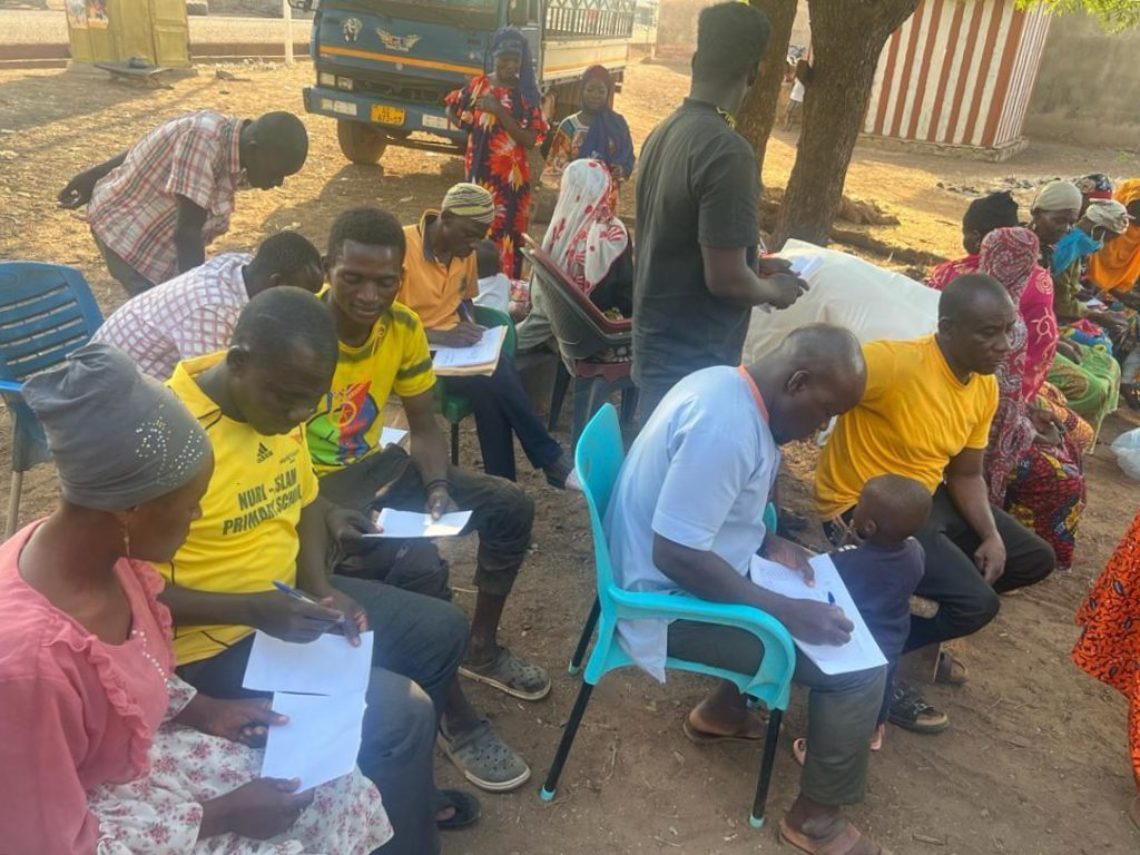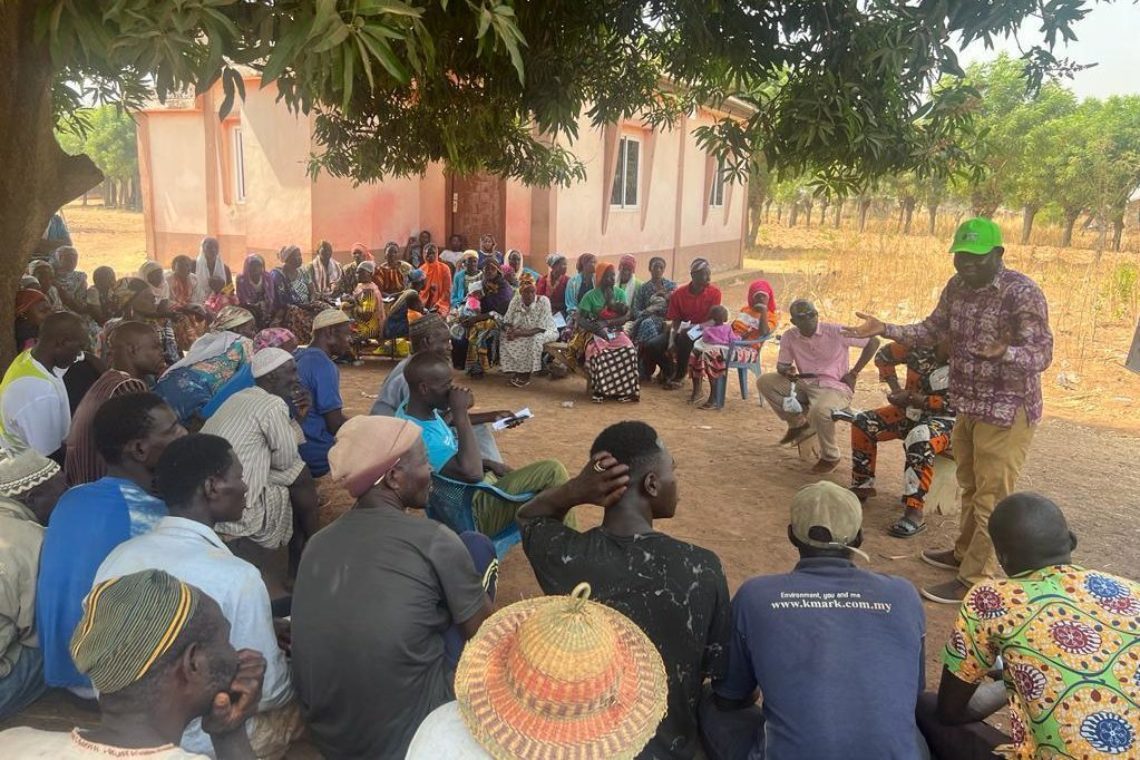Make your 2X MATCHED gift today!
This week only: Every $1 will be matched with $2 to empower women worldwide.
This week only: Every $1 will be matched with $2 to empower women worldwide.
Posted on 02/21/2024

Alfred Yeboah is the Director of Global Program Operations at Grameen Foundation and Lead Trainer of the Exploring Power Dynamics Workshop.
Learn more about our innovative Workshop here.
Power dynamics run through all relationships and need to be understood as a fundamental component of how we view ourselves and others. When power is used negatively in a relationship, it creates marginalization and oppression, establishes dominance, superiority, privilege, and elitism over others. When used positively, a sense of self-empowerment is achieved – a wholesomeness that speaks to one’s own good self-esteem and fosters inclusiveness of others, ever seeking for the other to realize the fullness and beauty of their own potential.
My engagement with Grameen’s Exploring Power Dynamics (EPD) training over the past five years has been humbling and overwhelming. I have discovered my true self more as a facilitator of this unique workshop and one blog post will not be enough to fully flesh out the learnings and self-introspection I have had to manage both personally and professionally.
I have come to the full realization of how the dynamics of power and control exist within relationships and systems, often manifesting in quite subtle ways, and in many cases, are easily dismissed or written off as something else. Many of the more harmful impacts fall on women. Female participants of the workshop have shared with me some of the ways power dynamics have hurt them including emotional and economic abuse, and threats and isolation from their male partners. This behavior causes them to lose a sense of self-empowerment, autonomy, and choice and affects their relationships with relatives, work colleagues, and the communities around them.

One cornerstone of the workshop includes learning new communication skills and strategies to engage in constructive dialogues that are rooted in integrity, respect, and trust. Participants gain a renewed sense of awareness and responsibility. Participants have reported back that they are now better positioned to hold difficult conversations and manage confrontations with their partners, children, and work colleagues.
Overwhelmingly, participants state that one of the most important aspects of the workshop is the safe space provided. The workshop ensures that room is made for participants to pause, reflect, and express themselves in supportive, non-judgmental ways that are conducive to mutual learning and self-discovery. EPD brings the personality of most of the participants to life. If you are patient, aggressive, intolerant, or humble, it shows in the workshop engagement and offers a space to get people to investigate their way of thinking and to be more conscious of the steps required to enhance inclusion.
The EPD workshop curriculum is designed in such a way that it brings clarity to participants about the need for them to slow down in their thought processes, increase self-awareness, and address their unconscious bias. One of the key highlights for me as a facilitator is the practical application of how participants begin to see situations from others point of view and that it is only by doing this that they are able to increase empathy. Participants are able to increase awareness of themselves and the ways they interact with ‘the other’ and are now equipped with dialogue skills to better approach engaging in sensitive topics.

Another crucial aspect of EPD is the privilege walk (one of the more humbling activities of the workshop) in which participants gain an understanding of power manifesting through dominant and subordinate groups and how that impacts the dynamics of a relationship. This activity has always hit me hard and challenged me to strive to be more sensitive, tolerant, understanding, and empathetic to the plights of those in subordinate groups because the ‘tables can turn’ and one can easily find him/herself in a subordinate group experience which is often negative.
The entire workshop ends by highlighting practical ways to take a gender transformative approach in the design and delivery of programs and to develop opportunities for challenging harmful gender norms and unequal power relationships. The conclusion includes creating an action plan that highlights ways to promote the influence of women in communities and address unequal power relations between women and men. A business case is made for why investments need to be designed to reduce gender gaps and to promote women’s agency and resilience.
As a result of the workshop, most participants now choose to lift themselves and others up with intention. They now set the example of constructive communication that is based in kindness, integrity, compassion and understanding in their everyday dealings at home, the workplace, and in the community.
The exchange of ideas between participants and facilitators created within the workshop has encouraged new ways of thinking and approaches that allow me to apply an intersectional lens when considering gender issues and to challenge simple comparisons between women and men. As a result, I am now more open and creative in finding solutions to conflict situations.
In fact, I share in the insights of participants as a facilitator to the extent that the workshop teaches that it is okay to be vulnerable in some situations and that it is indeed an act of courage and inner strength. I have had to learn to be vulnerable and show up as my true self so that I can build deeper connections, foster empathy, and create an environment of trust and understanding with my family and work colleagues and our many local implementing partners.
I leave the workshop every time with a renewed mindset about who I am and how I make others feel. The engagement provides an opportunity to promote equity in practice, enhance openness and foster a sense of belonging as a core component of inclusion.
It is my hope that many people across the world get to experience this rare workshop.